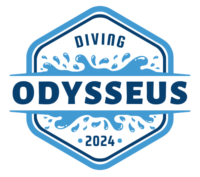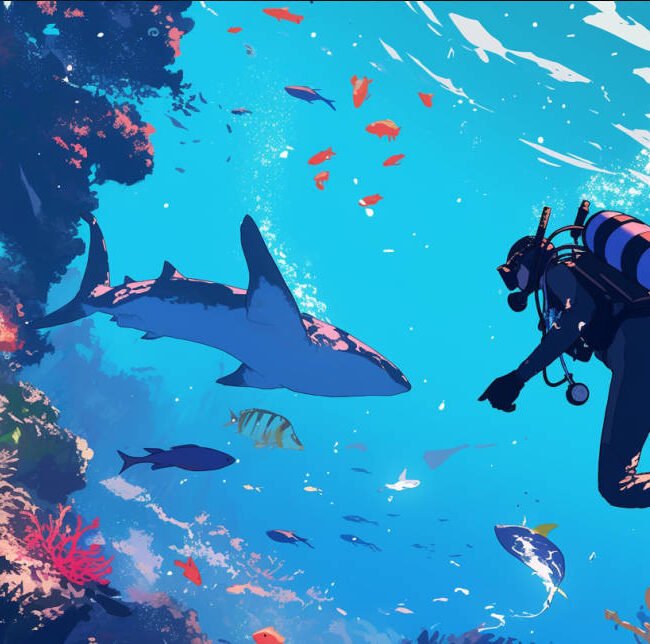Recreational scuba diving offers more than just an exciting adventure beneath the waves. It’s a full-body workout, a stress reliever, and an opportunity to connect with nature in a way that few other activities can. Whether you’re looking to improve your physical health, boost your mental well-being, or make meaningful connections with others, scuba diving provides a range of benefits that enhance both body and mind. In this guide, we’ll explore the numerous physical and mental health advantages of recreational scuba diving, and why it should be part of your wellness routine.
Physical Health Benefits of Scuba Diving
Scuba diving isn’t just an exciting adventure; it’s a fantastic workout that can improve your physical health in numerous ways. From building muscle strength to enhancing cardiovascular fitness, diving offers an array of health benefits. Whether you’re looking to get fit or maintain your health, the physical benefits of scuba diving are undeniable.
Full-Body Workout
One of the key recreational scuba diving benefits is that it provides a full-body workout. When you dive, every part of your body is engaged—your core, arms, legs, and back. Swimming against currents and adjusting your buoyancy requires strength, coordination, and balance. This constant movement helps build muscle endurance and promotes flexibility, making scuba diving a great way to stay fit while enjoying the underwater world.

Cardiovascular Health and Endurance
Scuba diving is also excellent for your heart. As you dive, your heart rate increases to meet the demand for oxygen, improving cardiovascular health over time. The constant movement, swimming, and controlling your breath all challenge your cardiovascular system, improving your stamina. Recreational scuba diving benefits include enhanced endurance, which helps you remain active for longer periods, both underwater and on land.
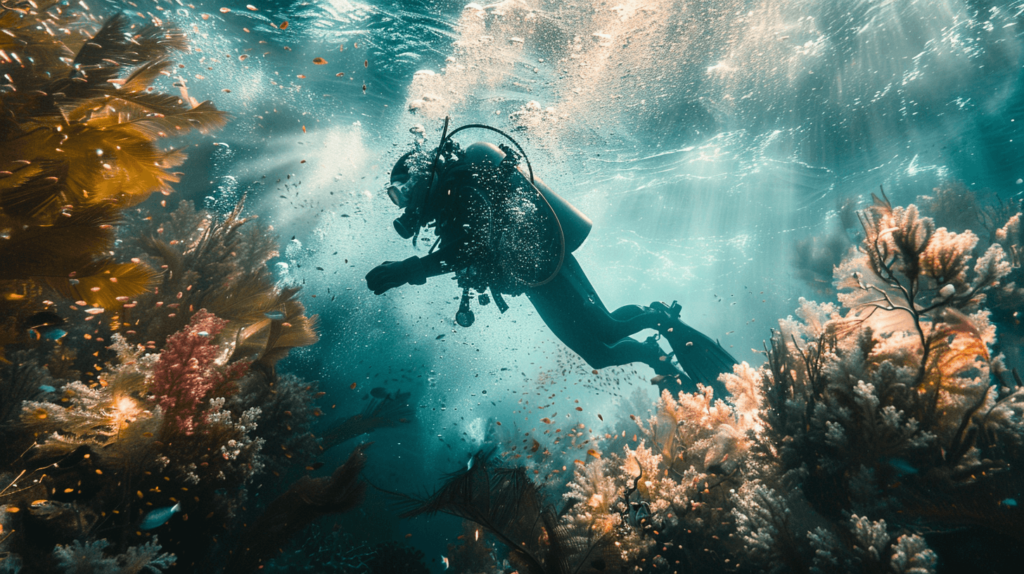
Respiratory Health and Improved Breathing Techniques
One of the most profound recreational scuba diving benefits is the improvement in respiratory health. Scuba divers practice controlled breathing to stay calm and regulate their buoyancy, which can help increase lung capacity and oxygen efficiency. Regular diving can lead to better control over your breathing, helping you breathe deeper and more efficiently even outside of diving.

Weight Management and Fat Loss
Scuba diving is an effective, low-impact exercise that helps you burn calories and manage weight. The activity itself burns calories while diving, and since water provides resistance, it helps you tone muscles. Whether you’re diving for an hour or more, you can expect to burn up to 500-700 calories per dive, depending on the intensity. Recreational scuba diving benefits also include fat loss, as the body works to maintain warmth and keep moving.
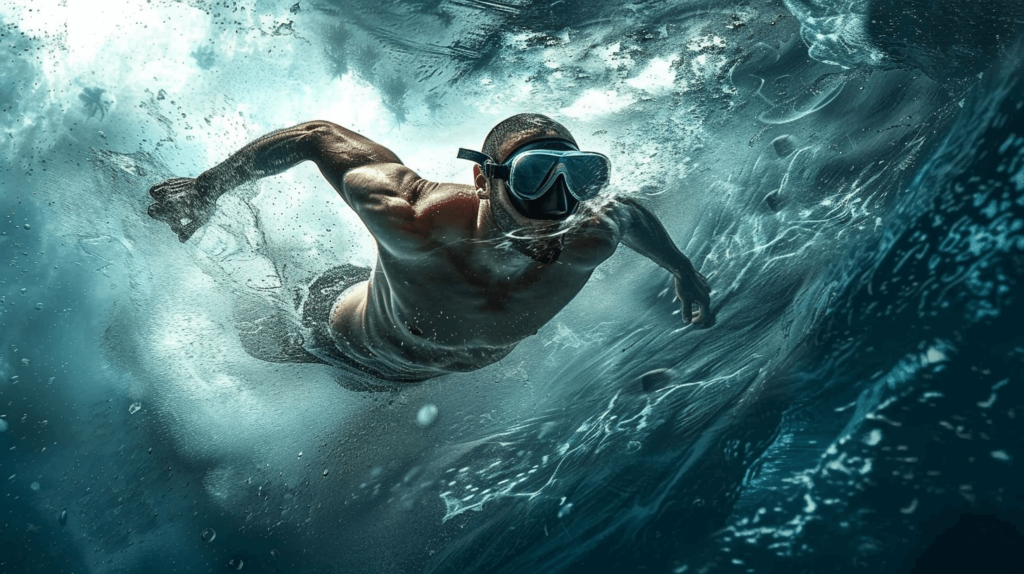
Low-Impact Exercise for Joint Health
Scuba diving is an excellent low-impact exercise. The buoyancy of water reduces the strain on your joints, making it ideal for people with joint problems or those who want to avoid high-impact workouts. Whether you’re recovering from an injury or just want a gentle workout, the low-impact nature of scuba diving is one of the recreational scuba diving benefits that make it accessible to people of all ages and fitness levels.

Mental Health Benefits of Scuba Diving
Scuba diving isn’t just good for your body—it’s great for your mind too. The underwater world offers a peaceful escape, promoting relaxation and mental clarity. Recreational scuba diving benefits extend far beyond physical health; they also provide significant mental health improvements.
Stress Relief and Anxiety Reduction
One of the most immediate recreational scuba diving benefits is its ability to reduce stress and anxiety. The underwater environment is calming and quiet, helping to lower cortisol levels and induce a feeling of peace. Breathing deeply and slowly underwater also activates the parasympathetic nervous system, promoting relaxation and reducing tension. After a dive, many divers report feeling rejuvenated and free from the pressures of daily life.
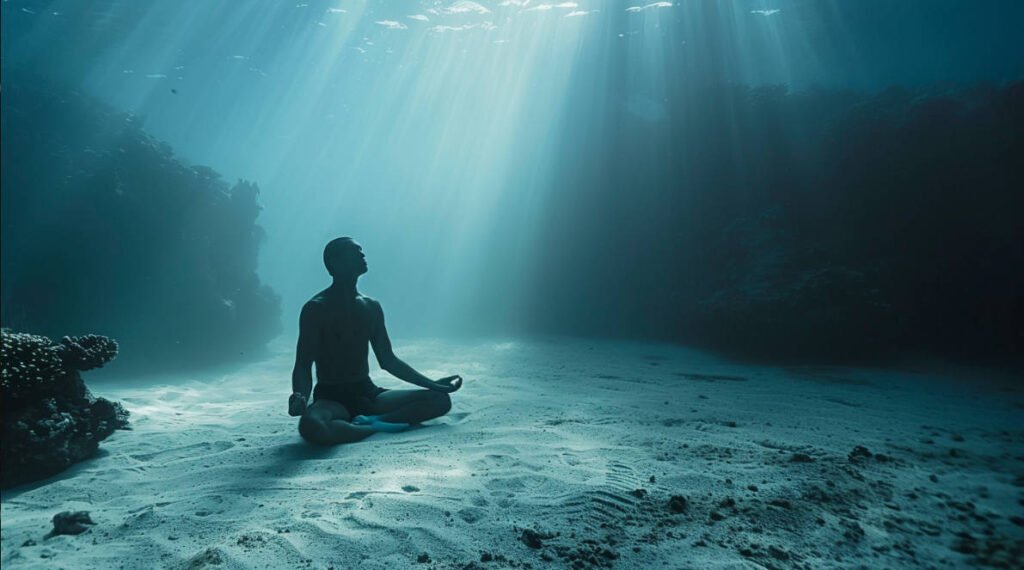
Mindfulness and Mental Clarity
Scuba diving encourages mindfulness, as it requires full attention to your surroundings and breath. Focusing on the present moment while underwater helps clear your mind of distractions, leading to enhanced mental clarity. For people looking for a mental reset, recreational scuba diving benefits include a stronger sense of focus and a break from everyday mental clutter.

Improved Mood and Emotional Well-being
Scuba diving has a direct impact on emotional health. The natural beauty of the ocean, combined with the physical activity involved, can trigger the release of endorphins—your body’s natural “feel-good” hormones. Many divers experience an uplifted mood after diving, which can help combat symptoms of depression and improve overall emotional well-being.

Increased Confidence and Self-Esteem
Successfully completing a dive, mastering new skills, or exploring new dive sites can significantly boost your self-esteem and confidence. As you gain experience and overcome challenges, you will feel more confident both in the water and in other areas of life. Recreational scuba diving benefits include personal growth and a stronger sense of accomplishment.

Social and Community Benefits of Scuba Diving
Scuba diving isn’t just a solo activity; it’s a wonderful way to meet new people and build lasting friendships. The social aspects of diving play a crucial role in the recreational scuba diving benefits. Let’s explore how diving brings people together.
Enhanced Social Interaction and Community
Scuba diving creates a tight-knit community of divers who share a love for the ocean. Whether you’re diving locally or at a remote destination, the shared experience of diving fosters new friendships. Many divers form bonds with their dive buddies, and the social connections formed underwater can lead to lifelong friendships.

Building Stronger Connections Through Shared Experiences
The experience of scuba diving together strengthens connections. There’s a unique bond that forms between people who explore the underwater world together, sharing the awe of discovering new places. Diving gives you the opportunity to form meaningful relationships based on a mutual love for adventure and exploration.

The Therapeutic Advantages of Scuba Diving
Scuba diving is more than just an adventure sport—it offers significant therapeutic benefits that aid in physical and psychological recovery. Whether recovering from an injury or seeking to reduce stress, scuba diving can be an effective tool for healing both body and mind. In this section, we will explore how recreational scuba diving benefits those in need of rehabilitation and mental health support.
Recovery and Rehabilitation
Recreational scuba diving benefits include its therapeutic impact on physical recovery. The buoyancy provided by water reduces the strain on joints, making it easier to exercise without causing further injury. Many divers have used scuba diving as a rehabilitation method for conditions such as arthritis, muscle injuries, and joint issues. Additionally, the controlled breathing involved in diving can improve lung capacity and overall oxygen intake, promoting quicker recovery after physical strain.
Beyond the physical aspect, scuba diving has been used in psychological rehabilitation. The calming underwater environment offers a break from the stresses of daily life, making it ideal for those recovering from mental health challenges such as PTSD, anxiety, or depression. The focus on breathwork, combined with the tranquil surroundings, provides mental clarity and emotional healing.

Reducing Mental Fatigue and Boosting Mental Health
Scuba diving offers more than just a break from daily life; it actively reduces mental fatigue and boosts overall mental health. The practice of mindfulness is central to the sport, requiring divers to focus entirely on their breath and environment. This mindfulness helps alleviate burnout and stress, offering a restorative effect on mental health.
Diving has been shown to reduce cortisol levels (the stress hormone) and trigger the release of endorphins, which are natural mood boosters. This is why many divers report feeling relaxed and rejuvenated after each dive. Regular diving can be an excellent way to maintain emotional balance and mental wellness, providing a sense of calm and well-being that lasts long after the dive.

Environmental Awareness and Conservation
As much as scuba diving benefits the individual, it also plays an important role in fostering environmental awareness. Divers have a unique opportunity to connect with marine life and witness the beauty of our oceans up close. This connection often leads to a heightened sense of responsibility toward ocean conservation. Let’s dive into how recreational scuba diving benefits the environment and how divers can contribute to marine conservation.
How Scuba Diving Promotes Environmental Awareness
One of the significant recreational scuba diving benefits is the opportunity to experience marine ecosystems in their natural state. Seeing vibrant coral reefs, schools of fish, and underwater landscapes firsthand makes divers more attuned to the fragility of the environment. The more divers understand the importance of ocean conservation, the more motivated they become to protect marine life and preserve ocean habitats.
Through scuba diving, individuals often learn about environmental challenges, such as coral bleaching, pollution, and overfishing. These first-hand experiences drive home the importance of sustainable practices and make divers passionate advocates for ocean preservation.

Sustainable Diving Practices
While scuba diving brings many environmental benefits, it’s also crucial that divers adopt responsible and sustainable practices to minimize their impact on the oceans. From avoiding touching delicate coral reefs to reducing plastic waste, divers play a vital role in preserving the marine environment. Responsible diving also means respecting wildlife, avoiding disturbances to marine animals, and ensuring that all dive equipment is eco-friendly.
Educating divers about sustainable diving practices is key to ensuring that future generations can continue to enjoy the wonders of the ocean while also maintaining a healthy ecosystem. Recreational scuba diving benefits can extend far beyond the individual by promoting ocean conservation and protecting marine biodiversity.

The Exciting Adventure and Safety of Scuba Diving
While the health and environmental benefits of scuba diving are clear, the adventure itself is one of the biggest draws. Scuba diving offers unparalleled opportunities for exploration and adventure. However, just like any adventure sport, safety is paramount. Let’s explore why diving is both thrilling and safe when proper precautions are taken.
The Thrill of Exploration
One of the most exciting recreational scuba diving benefits is the ability to explore underwater landscapes that most people will never see. From vibrant coral reefs to mysterious shipwrecks, the underwater world is full of adventure and discovery. Whether you’re diving in tropical seas or exploring cold-water environments, scuba diving provides a unique experience that few other activities can offer.
The thrill of seeing new marine species, uncovering historical shipwrecks, or simply enjoying the serenity of underwater caves is what keeps divers coming back for more. For many, the excitement of exploration is one of the most rewarding aspects of the sport.
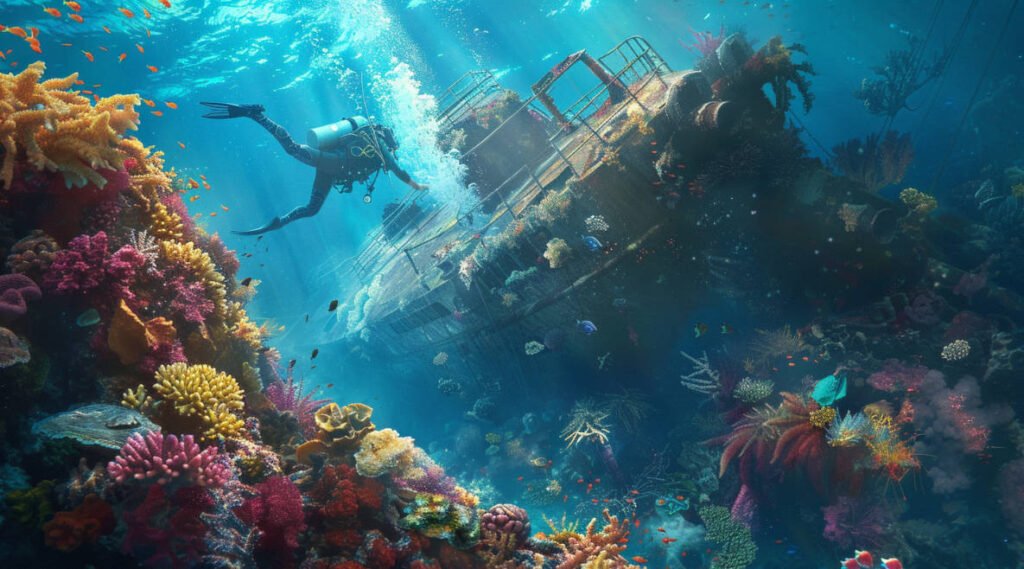
Safety Procedures for Scuba Divers
While scuba diving is an exciting adventure, safety is always the top priority. Recreational scuba diving benefits include a well-established framework for ensuring the safety of divers. Before embarking on any dive, divers must undergo proper training and certification to understand the risks and safety procedures.
Key safety practices include checking equipment before diving, monitoring air levels, using dive computers to manage depth and time limits, and diving with a buddy. Instructors emphasize the importance of controlled ascents, equalizing ear pressure, and avoiding panic underwater. Following these safety measures helps ensure a safe and enjoyable experience for all divers.

Training and Certification for Recreational Scuba Diving
Before diving into the depths, becoming a certified diver is essential for safety. Recreational scuba diving benefits are maximized when divers undergo proper training and certification. The certification process typically involves classroom instruction, pool practice, and open-water training. Upon completion, divers are equipped with the skills and knowledge to dive safely and responsibly.
Training and certification are offered through various organizations like PADI and SSI, with courses designed for beginners to advanced divers. This certification not only ensures safety but also gives divers the confidence to explore the underwater world responsibly.

Conclusion: Why Scuba Diving Should Be Part of Your Wellness Routine
Incorporating recreational scuba diving benefits into your wellness routine offers a unique combination of physical, mental, and social advantages. From improving cardiovascular health and muscle strength to reducing stress and boosting mental clarity, scuba diving has a holistic impact on well-being. Whether you’re looking to improve your fitness, relax your mind, or explore new environments, scuba diving provides an unparalleled experience that nurtures both the body and soul.

Adding scuba diving to your wellness plan is not just about the adventure; it’s about embracing a way of life that enhances your overall health and connects you to the natural world. The positive effects on both mental and physical health make scuba diving an invaluable part of any wellness regimen.
